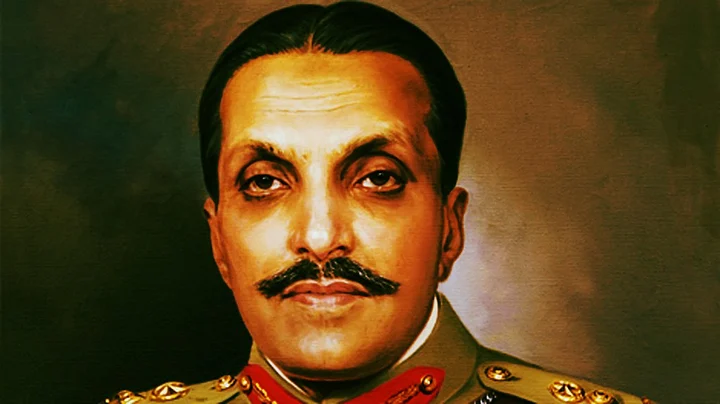(On the occasion of Zia-ul-Haq’s death anniversary, here’s a piece from The Quint’s archives that delves into Mohammed Hanif’s fictionalised version of his demise.)
Military dictators have captured literary imagination for years, and Mohammed Hanif’s A Case of Exploding Mangoes is not any different.
The story of an insecure, brutal and visibly paranoid General Zia-ul-Haq’s mysterious death is at the heart of this dark satire. Haq, who was Pakistan’s dictator between 1978 and 1988, died in an air crash.
Reveling in the subcontinent’s fascination with this leaf out of Pakistan’s history, Hanif has not penned down a run-of-the mill, drab historical narrative. Instead, he explores and re-imagines outrageous scenarios and reasons that could explain Zia’s death.
The Quint curates from Hanif’s book.
The Many Moods of Zia
How did all this stuff get here without his knowledge? “Who wants to kill me?” General Zia asked in a neutral tone, as if enquiring about the lawnmowing arrangements. Brigadier TM caressed the brocade sofa cover with the tips of his fingers and wondered how someone had managed to change it without his security clearance.
The comic-novel juxtaposes historical facts with re-imagined literary versions of the past, to expose – both brutally and poignantly – the precarious fragility of rulers.
Giving a fictional entry into the dictator’s life, his many myriad moods and his obsession with breasts, Hanif writes:
The first thing that shocked the First Lady about the picture was the amount of flesh oozing out of the white woman’s blouse...The caption said innocuously: The President being interviewed by the famous foreign correspondent Joanne Herring. Interview my foot, she thought. It seemed that it wasn’t Ms Herring interviewing him, but General Zia interrogating her breasts.
A Case of Exploding Possibilities
While the plot centres around protagonist Ali Shigri, a trainee pilot who found his father dead at the hands of Zia’s government and decides to seek revenge; the book comes alive with the stew of conspiracy theories around the General’s death.
Later over dinner, savouring the bitterness of bitter gourd, Bill Casey spoke like a ghost with the enlightenment of hindsight. “Brother Zia.” He dabbed the corner of his mouth with his napkin to wipe off the drool. “You think your folks are tryin’ to kill ya? You should see those vultures at Capitol Hill. They have already killed me.”
The book also introduces at least six other possible suspects, including a Marxist-Maoist street cleaner, blind woman, a crow, a snake, an army of tapeworms and an Ali Shigri himself, who could have killed the General.
Tapeworms are eating through General Zia’s heart now. The krait’s poison has dulled his pain but he can feel his innards being torn apart. He inhales the cold air-conditioned air in an attempt to hold on to life. He breathes in VX gas. If they are all trying to kill General Zia, who is trying to kill them?
‘Fattened, Chubby-Cheeked and Marinated in His Own Paranoia’
The satire, laced with an absurdist quality, incorporates hilarious details of Zia’s life.
This speech is dead. No emotions, General Zia said. People will not only think that I am a prisoner in my own Army House, but that I am also suffering from some kind of dementia...The paragraph that says I will not move into the President House because it has blood in its foundations doesn’t make sense. Whose blood? Say something about bloodsucking politicians. Say something about poor people. You do know there are poor people in this country? I am sure you don’t want to become one of them.
His desperate attempts to be a righteous Muslim, reading the Quran all the time, his frantic wish to appear funny; are all shown with mocking disdain.
General Zia cried and prayed non-stop in an attempt to stop himself from doing the inevitable, but like a relapsing junkie, he found his hands reaching for a volume of the Quran covered in green velvet. He kissed its spine thrice and opened it with trembling hands.
The part where Hanif writes that Zia’s tryst with unprecedented power left him “fattened, chubby-cheeked and marinated in his own paranoia,” is one of those examples where he punctures the authority and image that one would otherwise have of a ruler, worse, a dictator.
Although the narrative asks the question – who assassinated President Haq? – it doesn’t make any attempt to solve it.
And somewhere, that serves as the poetic justice to Hanif’s humorous, albeit endearing, re-imagination of Zia’s death.
He is also proof that sometimes, history can be narrated with fiction more easily than with known facts.
General Zia can’t believe what Arnold Raphel just said: the world would remember him as a bit of a bore. In a moment of panic General Zia feels that he must rectify this historical misconception. There is no way he was going to go down in the textbooks as the President who ruled this country of one hundred and thirty million people for eleven years, laid the foundations of the first modern Islamic state, brought about the end of communism, but was a bit of a bore. He must tell them a joke, he decides.
The excerpts have been taken from Mohammed Hanif’s ‘A Case of Exploding Mangoes’ published by Random House India.
(At The Quint, we question everything. Play an active role in shaping our journalism by becoming a member today.)
